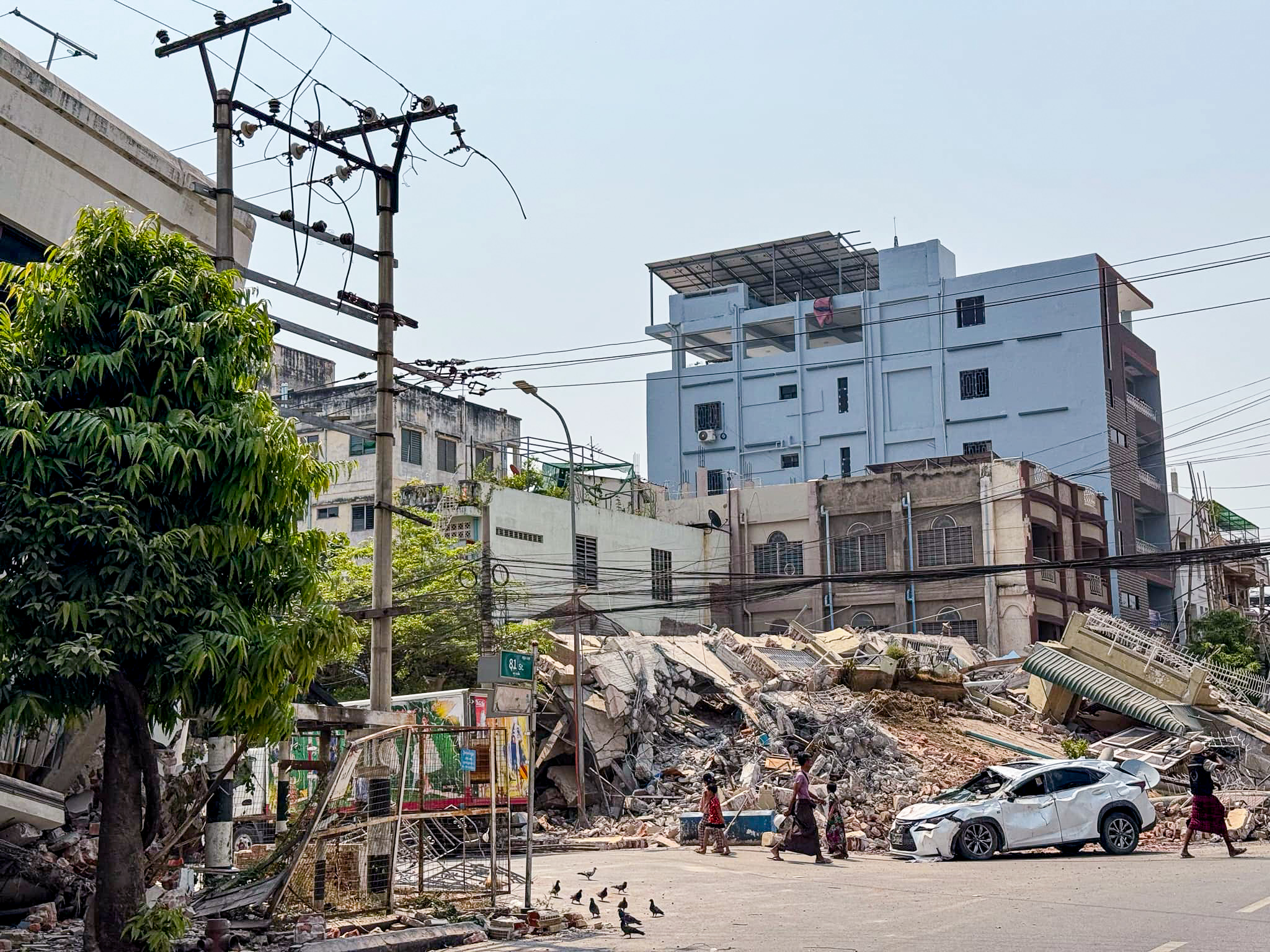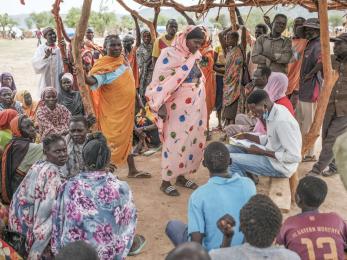In Yemen, one family’s fight against cholera

As Abdullah sits by his daughter Nehan’s bedside, he comforts her in the familiar language of a parent’s love: adjusting her blanket, delicately smoothing her hair, gently holding her hand. He is quiet and careful with his words, but Abdullah’s eyes are full of love and concern for his child.
At just 7 years old, Nehan is fighting for her life in a cholera isolation ward in the Mahweet province of Yemen. The humanitarian crisis in Yemen, caused by ongoing violent conflict, has left millions of families like Nehan’s hungry and vulnerable to disease. A staggering statistic demonstrates the horror of this conflict: a child in Yemen dies every 10 minutes from preventable causes.
According to the UN, 14 million people may now be on the brink of famine in Yemen. The food that is available has skyrocketed in price, and families have resorted to skipping meals or eating leaves to survive. Just in the last month, Mercy Corps teams in Yemen have reported that cases of acute malnutrition have doubled in certain areas.
Cholera cases are on the rise, too. As of October, the WHO reported that 10,000 new cases were being documented each week. The crisis is so large that the numbers can be hard to fathom — but behind every case of malnutrition or cholera is a family doing everything they can to survive.
Abdullah is a banana farmer and a father of seven, including Nehan. When the family can’t make ends meet, Abdullah cuts firewood to sell to his neighbours. Just like any parent living amidst conflict and crisis, he is always thinking of food, water and safety for his children.
When Nehan became sick, Abdullah brought her to a local Mercy Corps-supported health clinic the very next day. “There is no clean water,” he says. “We used to drink from the streams.” Nehan is now receiving treatment, and Abdullah watches over her hoping for a full recovery.

This clinic has seen thousands of cholera cases since the latest outbreak began in July 2017. Afra, the clinic’s chief nurse, has been helping cholera patients for more than a year. “There were a lot of cases,” she says. “Staff couldn't keep up, we worked day and night. Even the head of the hospital had to work with them, even though he was not in good health. In the beginning, we had to put patients on the floor, because there were not enough beds.”
The clinic is better-equipped to help people now — Mercy Corps has provided additional beds, cholera prevention kits, IV fluids and helped install much-needed equipment. Afra is thankful for all of the support, especially given the serious nature of the crisis. She tells us that many patients arrive in a state of shock, a sign of late-stage cholera, often carried in the arms of family members. “It’s so dangerous,” she says. “This is the worst thing I've ever seen. Our area is endemic with malaria and malnutrition, but cholera is the worst.”
The conflict in Yemen has put every community into survival mode — and we’re working to help in as many ways as we can. In Abdullah and Nehan’s community, the signs of Mercy Corps’ support dot the landscape as seen from the health clinic’s roof. The clinic itself now has more supplies and a solar-powered clean water pump. In the village, an enclosed clean water point now stands tall. There are houses scattered around it of families who’ve received emergency cash from Mercy Corps. And in the distance lies another village where our teams have provided lifesaving support.

Abdullah and his family have been receiving food baskets, which include items like flour, canned beans, sugar and vegetable oil, from Mercy Corps for 11 months now. The ongoing crisis has made it incredibly difficult for families to meet their most basic needs. “Life has changed in a crazy way,” Abdullah says about the conflict. “Without the intervention of the organisations, we would be in a bad condition. This is why we are still standing. Without Mercy Corps and the organisations, only God knows how we would be.”
Our dedicated teams in Yemen are doing everything they can to help families who are suffering in areas that have been deeply affected by the conflict. We are providing food assistance to more than 240,000 people across Yemen and supplying safe drinking water to more than 20,000 people each day in partnership with local water suppliers.
We are also providing support to several other cholera treatment centres, offering treatment to malnourished children and pregnant and nursing mothers, and working with farmers to help them grow more food and increase their incomes. With your support, our work in Yemen is addressing the most urgent needs of families in crisis and also helping Yemenis prepare for a future in which they can recover and strengthen their communities.
As Abdullah and his daughter wait to hear more details from the clinic’s doctors about Nehan’s treatment, he reminds us of something that our team members in Yemen know all too well: the only real solution to this massive humanitarian crisis is peace. “I wish we could be safe and have good health,” he says. “Enough blood, enough war. We need to be secure, we need to end this conflict.”
What else can we do?
The only lasting solution is a peace agreement with a political way forward. But with no sign of the conflict abating, millions of innocent men, women and children need our support more than ever. Urgent humanitarian aid — food, water, medical care — is vital to their survival.


